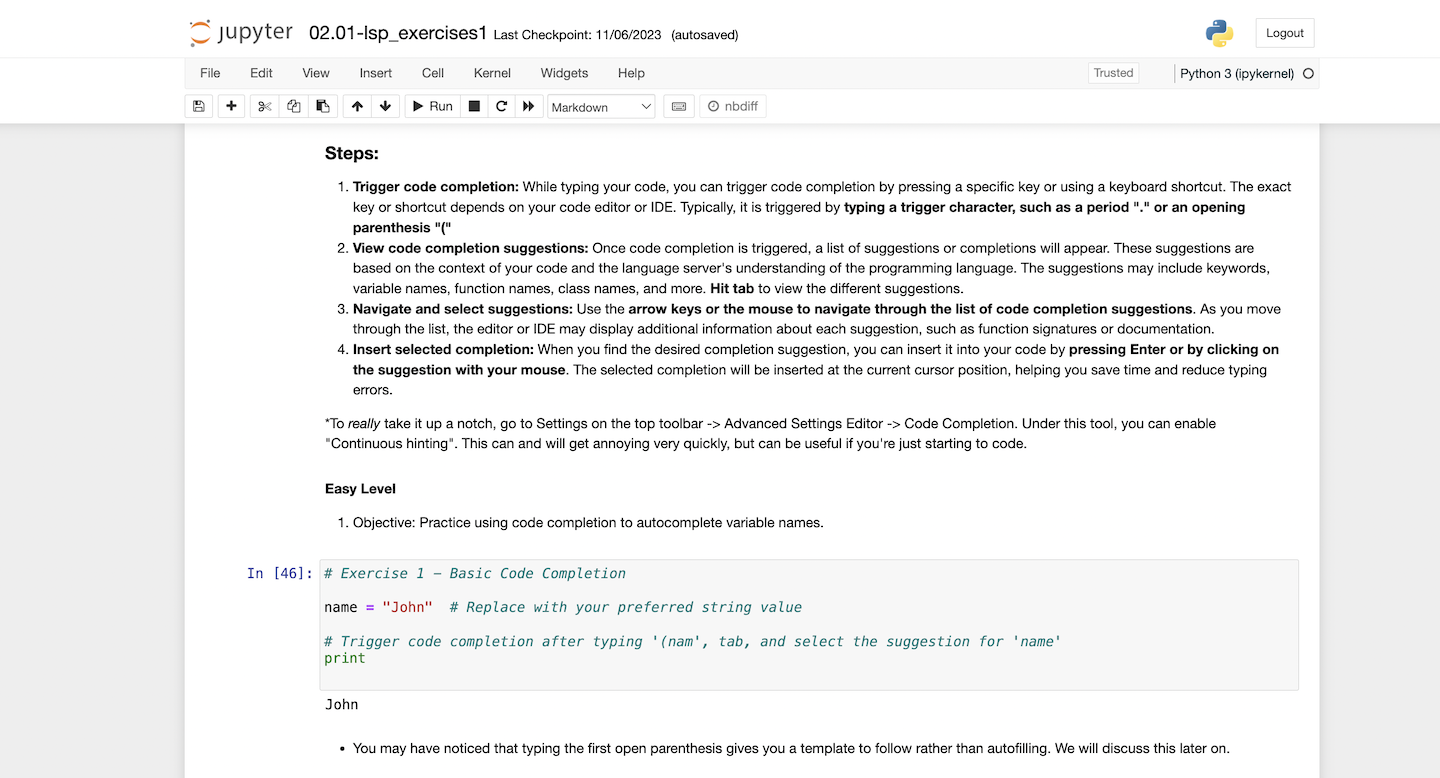Jupyter4Science is a knowledge base of original content and curated resources about developing and sharing Jupyter notebooks as they are used in the context of scientific applications.
| Resource information | Details |
|---|---|
| Resource name | Jupyter4Science |
| Website | https://jupyter4.science |
| Focus | Jupyter notebooks |
Jupyter notebooks and the Jupyter ecosystem
Computational notebooks, including Jupyter notebooks, come in many varieties, but they all have one thing in common: much like traditional laboratory notebooks, computational notebooks contain code cells interspersed with text that can be used to explain their analysis.
 A portion of a Jupyter notebook illustrating the interspersing of text (upper portion) and computational cells (lower portion)
A portion of a Jupyter notebook illustrating the interspersing of text (upper portion) and computational cells (lower portion)
Jupyter is a large umbrella project that covers many different software offerings and tools, including the popular Jupyter notebook classic interface and JupyterLab web-based notebook development environments.
The Jupyter4Science mission
The Jupyter4Science knowledge base is intended for a research-oriented audience, including computational scientists, research software engineers (RSEs), academic data scientists, social scientists, digital humanities researchers, students, and anyone else who uses Jupyter notebooks to conduct research. They aim to provide rich resources for researchers, students, and research and data (RCD) professionals about better practices to improve the accessibility, reuse, and reproducibility of their scientific software, data, and computational workflows.
Original content and resources
The knowledge base contains original content including tutorials, templates, blog posts, and example notebooks. They also curate and summarize external content like YouTube videos, podcast episodes, and more.
Topics include:
- Development environments for Jupyter notebooks
- Reproducible environments
- Sharing notebooks
- Creating publications with Quarto
- Templates and best practices
- Jupyter notebooks as peer-reviewed publications
- Building data dashboards and web applications with Jupyter notebooks



